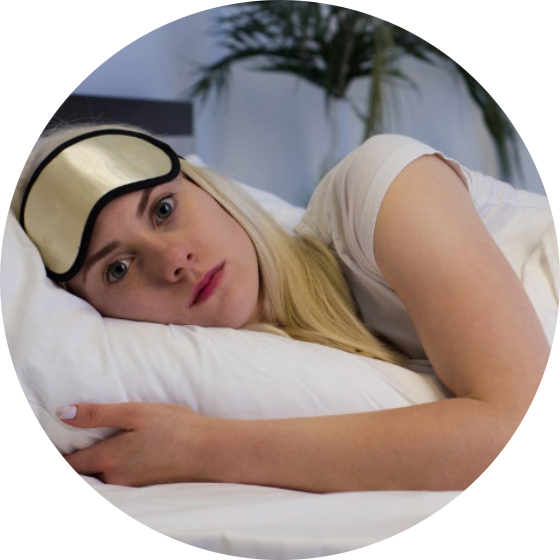Delayed Sleep Phase
Last updated: December 2021
Home > Information & Support > Adults > Sleep Disorders >Delayed Sleep Phase Syndrome (DSPS) is a misalignment in the circadian rhythm to the social and physical environment. For example a person’s sleep is delayed by two or more hours beyond a conventional bedtime.
The main issue is trying to fall asleep before the body clock is ready to and/or attempting to wake up in the morning before the body clock is ready to. This can lead to sleep deprivation, and excessive daytime sleepiness, if you need to wake up in the morning for work or school.
It commonly affects teenagers. This is generally because sleep needs change during the teenage years often making it harder to fall asleep at night and wake up in the morning – and unfortunately the school day does not make this easy. Many teens struggle to get to sleep in the week but fall asleep at the weekend and have lengthy lie-ins.

Symptoms of Delayed Sleep Phase Syndrome
- Find it hard to fall asleep at the desired time
- Difficulty in waking at the desired time
- Excessive daytime sleepiness
- Complaining of insomnia
- No other sleep problems present
- Mood and behaviour issues
How to treat Delayed Sleep Phase Syndrome
- Bright light therapy, shortly after awakening, may help to reset the body clock
- Reduce exposure to light in the evening and in particular avoid screen time an hour or longer before bed
- Shifting the bedtime schedule – there are two ways to do it 1) move bedtime forward gradually or 2) move bedtime later, usually by about three hours (this only works if you have a period time where you can implement this as it involves going to bed and waking up at inappropriate times)
- Improving sleep hygiene, keeping regular hours and only using the bedroom for sleeping can help to strengthen the body clock
- Melatonin or other natural sleep-inducing drugs are an option but should be used under guidance of a sleep specialist.
